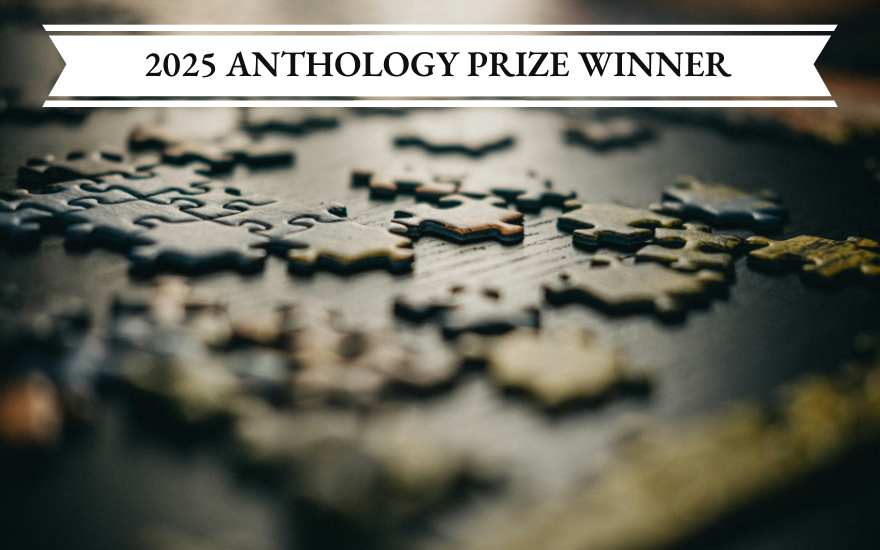
by Anna Cabreros | Jul 15, 2025 | contest winner, flash fiction
My sister Jane and I make the ideal jigsaw puzzle partnership. She’s more organized than me, the one who categorizes and compartmentalizes, but I have all the patience.
Most recently, we tried a 1,000-piece train travel scene. She dutifully separated the pieces into little groups – landscape, tray of food, luggage, maps. And then there are always those pieces that color-match but blend amorphously into the backdrop—the wall, the shadows, the seat cushions.
I will obsess over fitting these mundane pieces together. But Jane hates the slog. So she focused on the tray of food and the maps as I toiled through the pieces that all looked pretty much alike.
When we invited the police officer inside that night, I had nowhere to put my nervous energy but the puzzle. I’m sure the officer wondered how I could focus on a puzzle amidst a crisis. But I couldn’t make myself stop. I felt the disoriented need to be constructive even as I knew nothing I did would change a thing.
“I’m going to ask you some questions. I have to ask them to everyone even though I already have the details of tonight.”
“Okay,” said Jane.
I rotated a bluish blurry piece and tried to fit it to another. No luck, no matter the angle.
“Has he ever hit you before tonight?”
“No,” she said.
“Has he ever choked you?”
“No.”
“Does he have a weapon?”
“Yes.”
“Has he ever threatened to kill you?”
“No.”
How much has this questionnaire changed since we were kids? I wondered. Did it even exist back then? I thought of how varying the answers would have been depending on the timeline.
As the officer rattled off more questions, I kept trying the pieces. Sometimes looking for matching colors, sometimes honing in on the particular curvature of each edge. I had a few successes, but spent most of my time relentlessly rotating the shapes in hopes of finding them a home.
After the questionnaire was finished, the officer handed my sister a pink paper.
“This is an information sheet with numbers to call if you need a safe place to be until we issue the arrest and the EPO. But it looks like you’ll stay here, with your sister?”
“Yes,” she said.
“That’s great,” said the officer. “Most women in this situation don’t have a safe place to go. You’re very fortunate.”
Yes, we agreed. Very fortunate.
The officer left, and I kept working the puzzle as Jane calmed herself down. We wondered if her husband would open the door to the police tomorrow since he had refused tonight. If maybe he was too drunk to have heard the police knock tonight. We wondered, when did it get this bad? How hadn’t she seen this coming?
She thought she knew him, she said. She knew he was being erratic and increasingly seemed violent, but she never thought he would take it to this extreme.
I was still worrying the pieces when Jane asked if I thought she should go ahead and get him arrested.
“I don’t know,” I said, pulling apart two mismatched pieces ferociously clinging together. “I would. But it’s not my life. It’s yours.”
My husband chimed in. “He doesn’t know how to control himself,” he said reasonably. “Call. It might be the only thing to de-escalate the situation.”
He was right, of course. And it was the only thing she hadn’t tried. It’s the one thing our mother never did.
We set up the air mattress in our youngest daughter’s room. On most weekends, she likes to bunk with her older sister. Jane smiled at the small sleeping forms gilded by the nightlight in the adjacent room. She gave me a tender look before retiring to the air mattress.
By the time she was settled, it was near 3 a.m. But I wasn’t tired. I lay in bed until I heard my husband’s breathing regulate, and then I returned to the dining room table.
Jane was there, trying to make sense of the pieces I had set aside. All of them were in the same family of blurry blue, but on closer look, they belonged to completely different parts of the picture.
“I can’t sleep,” she said. “I thought this would help.”
I nodded in agreement and acknowledged that I was there for the same reason.
“But I hate this part of the puzzle,” she said. “All the good stuff is done, and now every piece looks the same. It’s giving me anxiety, trying to sort it out.”
And for the first time that night, tears. She had held it together the entire time, from the moment he slammed her against the wall to the panicked moments on the phone with me, from escaping her house to making it to mine, from calling the police to being questioned by them. All of it had gone so quickly, almost calmly. But now it was over and we weren’t sure what was next and she had to decide whether or not she should have her husband arrested the next morning.
I held her and let her cry for a while. Then coaxed her back to bed.
As I walked back through the dining room, I glanced at the nearly finished puzzle. It was true. All the pretty parts of the puzzle were fully assembled, and what was left looked like a monochromatic mess. Big open spaces between the landscape and the tray of food and the luggage and the maps. White space littered with tiny odd shapes, all clearly belonging to each other in some way. But what a process, what a mundane and tedious and painful challenge it was to anchor the beauty to the murky background.
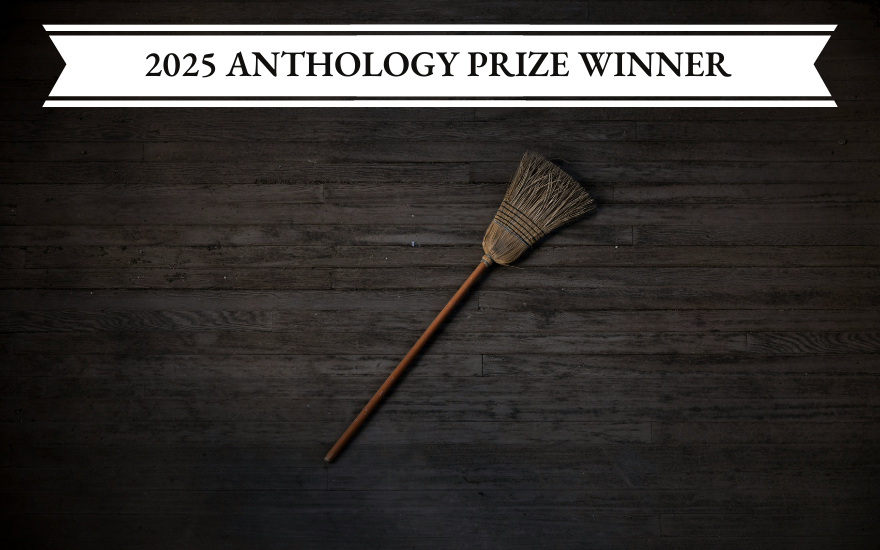
by Nancy Alvarado | Jul 10, 2025 | contest winner, flash fiction
“Do you want a bite, Linda?” you call out cheerfully from the living room. You’re settled into your recliner, hunched gleefully over a cinnamon roll. I pause, grip the broom hovering over a pile of debris in the middle of our tiny kitchen floor. I wanted to playfully scold you for the decadence of the cinnamon roll, but her name falls into the space between us.
I am not Linda.
She was a force, a tiny package of brains and courage. Her presence filled a room. Years before I knew I would love you, I wept at her funeral.
Now no longer small and fierce, she is forever contained, reduced to a box of ash tucked into the recesses of your closet, bones and teeth and memories.
Linda is your dead wife. I choke on her name as I would choke, dry-mouthed, on the cinnamon roll, on the ashes.
The black box from the mortuary takes up more space than its size.
II
“Sweetie, can you bring me the pictures from the top of the bookcase?”
You call me “sweetie” now, perhaps afraid of how her name and mine intertwine in your mouth, pleasing neither of us.
It’s good that I don’t believe in ghosts; poster-sized canvases, photos from Linda’s memorial service, cascade down on me from the top of the bookshelf where I dared to pull the corner of a frame. Her face, repeated, rains down on my head. Your face, kissing her temple, bruises me.
You are cleaning, purging, heaping a pile of your old life in the middle of the garage. The floor is covered with junk and memories. I silently hand you the stack of photos, gazing one last time into her piercing blue eyes. You gently turn the top photo over, leaving me staring at white canvas, and tenderly place the canvases alongside the broken vacuum cleaner, the plastic bags of expired ginger candy gifted to us almost daily by the neighbor with Alzheimer’s, and the leash for a dog who no longer exists. I covertly slide notebooks filled with her spidery writing into the heap, hoping her words will no longer take up so much space in our home.
I keep her journal hidden in our bedroom; I haven’t finished reading it.
Two fat men in a truck come to collect the pile. Grunting and sweating, they cart away your old life. I reassure you that you don’t have to do this, that you can keep bits and pieces of her until you’re ready to let go.
Your reply is brusque, “I know. I’m ready.” And then, softly, “Thank you.” I touch your shoulder.
I still the urge to beg the two fat men to load their truck faster, to take her away, to let us live as a pair instead of a trio.
III
You chose a sunny day to let her go. Hard things are always better on sunny days.
I walk silently beside you. For once, I don’t want to know what you’re thinking. Sand and shells crunch under my feet. I let the sound fill the space between us.
I watch your back, its shape as familiar to me as my own hands, as you step into the water. Foam laps at your knees. You dip your hand into the open bag of Linda’s ashes and toss them into the sea.
The wind whips your second handful into the air toward the shore, toward me. Gritty ash lands on my bare arms; I shiver.
Will I always be coated with her residue?
I lick my finger, salt and ash. A wave rises, washing Linda’s ashes from my skin.
The sea quietly carries her away, as you turn and walk toward me.
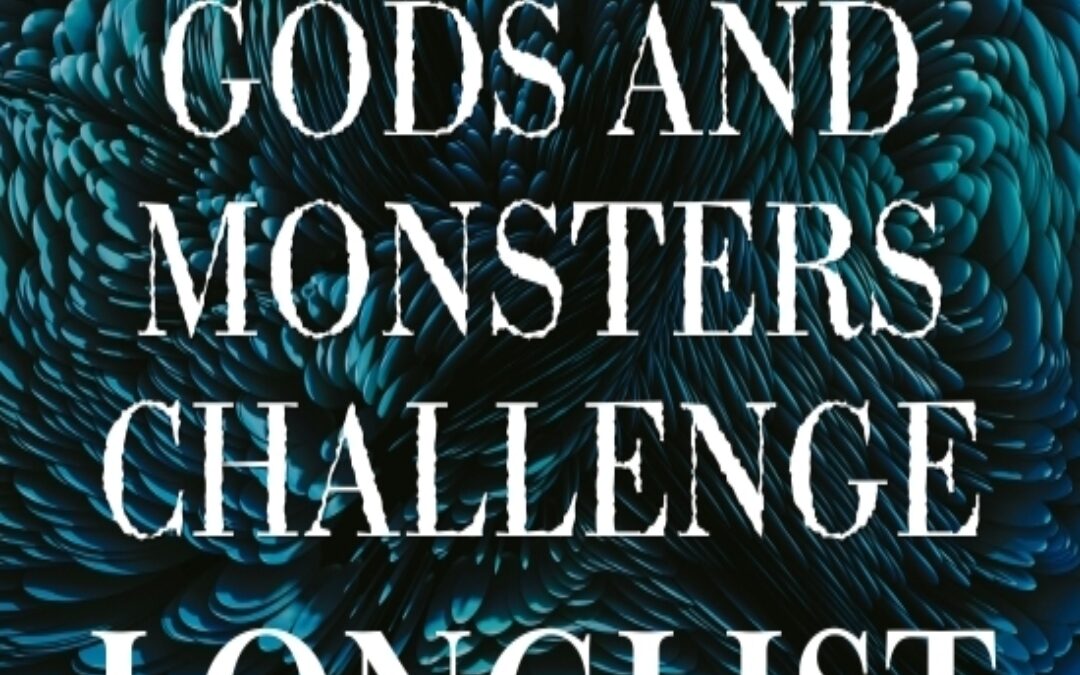
by Fractured Lit | Jul 8, 2025 | Uncategorized
We will admit that the stories from this challenge lit up our brains in all the right ways! So much creativity and thrilling stories in our queue, but we found a longlist of 21 stories! And we’re working on that elusive shortlist!
Longlist:
- My Creation
- It’s a Monster, Baby
- He Unmakes Himself
- The Nice Girls
- Return
- The Island of Sometimes Gods
- Barnacle Moon
- Tokoloshe
- From Clay, God
- China Plate
- Big Gulp
- Whispers of Misi-ziibi and Iteru
- What the Bones Remember
- Howard
- The God Beyond Time and Place
- Silence of Mothers (Selene Speaks)
- My Heart Bleeds for You
- The Minutes of Monsters
- The one with the birds…
- Addie, the Lamp & the Wager
- Chimei
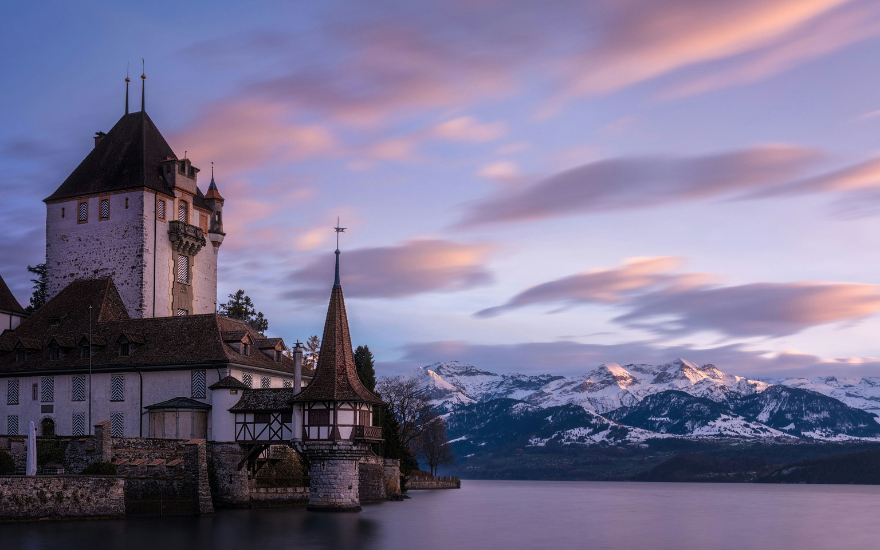
by Kelli Short Borges | Jul 7, 2025 | flash fiction
he says, as soon as this is over. She lists the names of towns she’s always wanted to see, foreign and sticky on her tongue, Lauterbrunnen, Lucerne, Zermatt, as they sit abreast at the infusion center in Tucson, the thick heat of July pressing on the glass, the long shadow of a Saguaro stretched like Dali’s clock in the late afternoon.
They Google pictures of snow-capped Alps, fields of cool white edelweiss and Alpine aster, cerulean lakes. We’ll ride the lift up from Grindelwald, see Lake Bachalpsee, skinny-dip in turquoise water. She shivers, touches his hand, laughs—See, I’m practically glacial. He gentles the blanket they’d brought from home around her matchstick frame, swipes cherry Chapstick along her fissured lips. Her strawberry-gold strands long gone, she wears a headscarf printed with cumulus clouds against an azure sky—blue is her favorite color.
After, he says, maybe we’ll see tulips in the Netherlands? They’ve always wanted to go. They’d seen pictures of the fields near Amsterdam in travel magazines placed on coffee tables around the center, each glossy shot a rainbow of color, rows of Skittles against a cloudless sky. Or the windmills in Zaanse Schans. She wouldn’t need to walk a single step, he could pull her along behind his indigo bicycle, tip his Dutch cap, Where to now, M’lady?
We’ll have to go in April, it’s the only month the tulips bloom, she reminds him. He counts the months from now to then, gazes out the window and rubs his eyes. Excuses himself to the restroom.
The drip of Red Devil burns through her veins as she waits for his return, the liquid moving through a port placed directly into her chest, below her jutting collarbone and above the place where teardrop breasts used to hang. A flame-colored blotch colors her chest near the port. She watches the poison slide into her body, reflects that the bright, clear drip happened to be exactly the shade she’d picked to paint their bedroom last year just before her diagnosis, Pantone 19—Chili Pepper. Had it been an omen? She’d challenged herself to move beyond the blues she loved, hoped the color might spice things up after twenty-five years. The thought of sex, now, so remote; when was the last time she’d been well enough? The fuzzy, floating thought teases, dissipates.
Her eyes droop and flutter, then open again as she senses his return, feels his weight shift next to her, smells the home of him—Irish Spring and sweat and pine shavings from his shop.
What about Iceland? she murmurs. He takes her hand. He’d been there once with his parents before they met, when he was just twenty-three.
Tell me about the ice caves again.
He tells her how he’s never seen any place as beautiful, the ice clear and aquamarine, how it glows as if lit within. How you get so cold it hurts, but only for a moment, how quickly the numb kills the pain. How the ice crystals seem to stretch on forever. How the blue never ends.
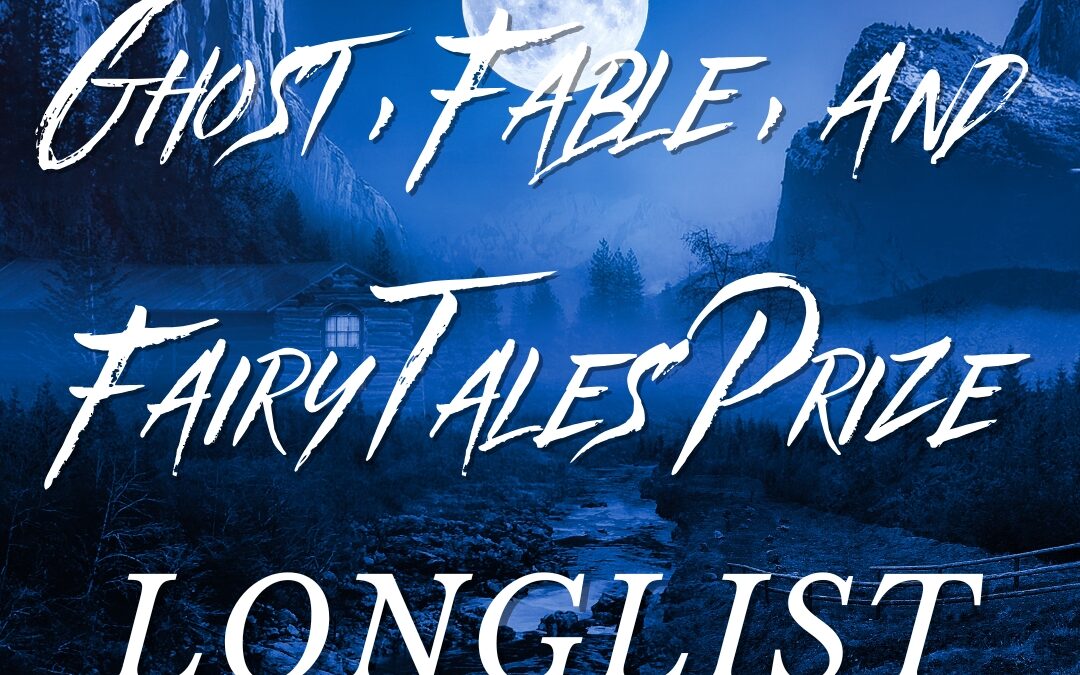
by Fractured Lit | Jul 7, 2025 | news
Congrats to all of our long-listed writers! Your story stood out to our readers and editors, and we’re excited to continue reading to find the perfect shortlist to send to Judge Dan Chaon!
Longlist:
- Temptation
- a white horse runs without its rider
- The Bureau of Exiled Ghosts
- Closed for the Season
- The Walker at Night
- Wolfie
- Bakunawa and the Seven Sisters
- Pinning a Soul
- Windows into the Solar System
- In the Hedgerow
- Reckoner
- Disenchanted
- Out of the Woods
- Just Right
- Kelpie
- Triple Body Walking
- Little Red Cap
- Pip
- Mercy
- Song
- The Ethics of Hematophagy
- What Light Through Yonder Window Breaks
- Some Vision of Horror
- My Mother the Sea
- The Hand
- Zen Lyrics for the Carhartt Guru
- Mother and Daughter
- Seed of the Starchild
- The Host
- Immortal Aubade
- The Ghost of No Regret
- Almalette
- The Tea Witch and the Heartless Gentleman
- The Return
- A Curse For The Merrow
- The 6:42 A.M. Caltrain from San Jose
- The Invisible Wild
- The Candles and Safe
- OWL FANTASMA
- One More Day to Stay
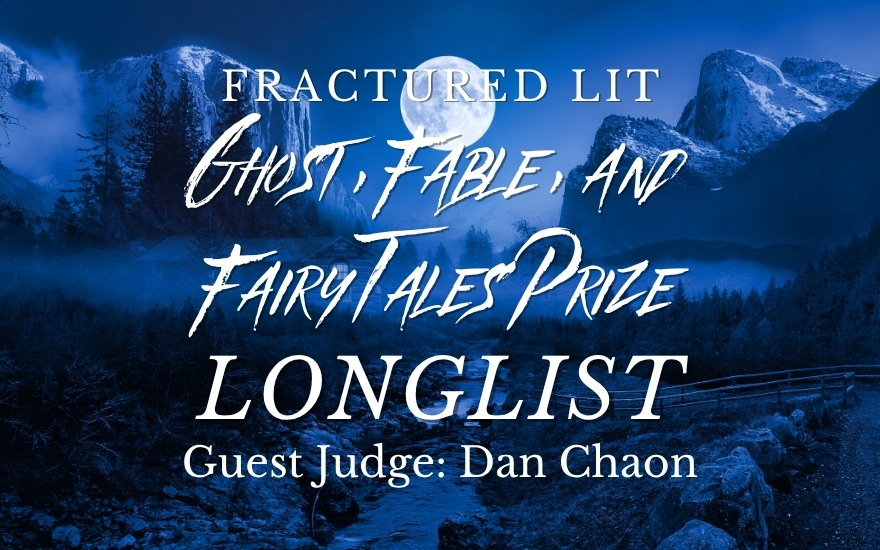
by Fractured Lit | Jul 7, 2025 | news
Congrats to all of our long-listed writers! Your story stood out to our readers and editors, and we’re excited to continue reading to find the perfect shortlist to send to Judge Dan Chaon!
Longlist:
- Temptation
- a white horse runs without its rider
- The Bureau of Exiled Ghosts
- Closed for the Season
- The Walker at Night
- Wolfie
- Bakunawa and the Seven Sisters
- Pinning a Soul
- Windows into the Solar System
- In the Hedgerow
- Reckoner
- Disenchanted
- Out of the Woods
- Just Right
- Kelpie
- Triple Body Walking
- Little Red Cap
- Pip
- Mercy
- Song
- The Ethics of Hematophagy
- What Light Through Yonder Window Breaks
- Some Vision of Horror
- My Mother the Sea
- The Hand
- Zen Lyrics for the Carhartt Guru
- Mother and Daughter
- Seed of the Starchild
- The Host
- Immortal Aubade
- The Ghost of No Regret
- Almalette
- The Tea Witch and the Heartless Gentleman
- The Return
- A Curse For The Merrow
- The 6:42 A.M. Caltrain from San Jose
- The Invisible Wild
- The Candles and Safe
- OWL FANTASMA
- One More Day to Stay
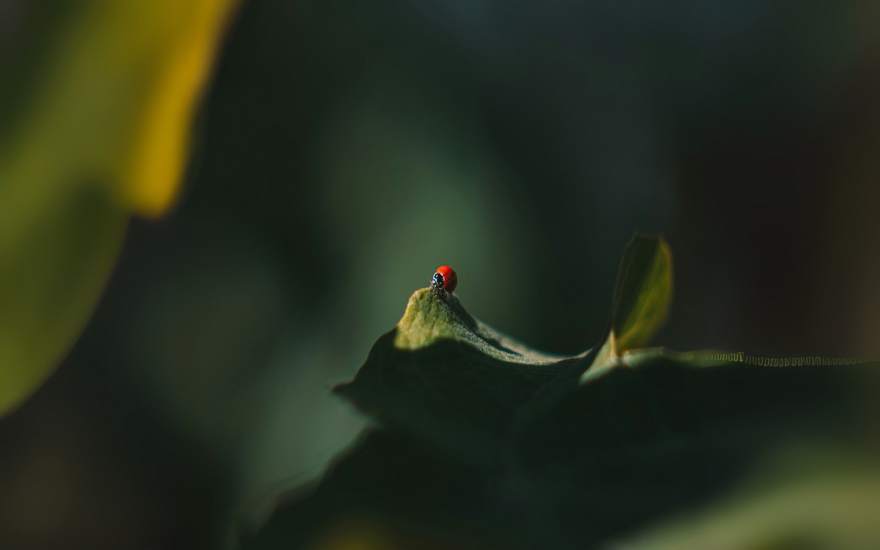
by Wenyi Xue | Jun 30, 2025 | flash fiction
Call your mother at 3 am, and when she asks why you are awake so late, tell her you recently learned that drain flies are fuzzier than fruit flies, even though both have made a home out of your sink. It’s important to keep people on their toes, so follow up this fun fact with “how is Jinghai doing?” and follow that up with “I run an average pace of 9 minutes now” and follow that up with “I don’t know if I believe there are good people anymore.” She will take this to mean “I can’t get over this breakup” and “I miss him,” and, although true, this means you won’t have to talk about the other blocked numbers on your phone.
Fly to California on a whim. Fly to California using money you should’ve set aside for an emergency, fly to California around the same time you flew to California last year, and tell people it’s a tradition. All traditions start from doing the same thing twice, so maybe it is a tradition, and you just don’t know it yet. Fly to California because last year your therapist (who is no longer your therapist) told you to (1) take more spontaneous trips and (2) see your friends more often. She’s no longer your therapist, but you figure if you already paid her hundreds of dollars, you might as well keep some of the advice.
In California, write in your Notes app “in California, I stay grieving” because this sounds like a good title for a poem. Except you don’t grieve in California because your best friends are dealing with a drain fly infestation. Spend your trip reciting the same drain-fly-fruit-fly fun fact you told your mom at 3 am. Don’t tell your friends that it was your ex who taught you this fun fact. Don’t tell your friends about how he bought you fly swatters, either. Stay up until 3 am again (except this time, in California hours) and call your mom to say, “I learned the drain-fly-fruit-fly fun fact from him.” She will say, “I know,” and you will extrapolate this to mean “he was important, he was different, he was good” when all she means is “I know you miss him.”
Consider telling your friends about the other blocked numbers. Un-consider this as soon as you remember you are an unreliable narrator, and before they were blocked numbers, they were drain flies. Scratch that, before they were blocked numbers, they were drain flies that you mistook for fruit flies. Scratch that, before they were blocked numbers, they were your friends, too. Tell your friends the drain-fly-fruit-fly fun fact again and ignore the strange looks you get as they tell you this is the fourth time you’ve said this fact.
Go home. Do your laundry as soon as you reach your apartment. Wash your sheets. Wash your sheets again. The drain flies have reached your bedroom despite the misleading name; this is a metaphor. A metaphor can only catch so much in its net; the “net” here is the fly traps you set up. Erase the metaphor. Wash your sheets again. It is now 3 am after you spent the entire day (and night) repetitively washing your sheets; this is (maybe) a metaphor. Call your mom.
Tell your mom about the blocked numbers this time. Conveniently leave out that one of the numbers is that of your best friend. If the number is blocked, does that mean it’s “ex-best friend” now? Maybe this is why you left it out: ex-partner and ex-therapist is a coincidence, but ex-best friend makes it a pattern. And you’ve already established you’re an unreliable narrator; this is why you keep saying drain-fly-fruit-fly — you still can’t tell the difference. Follow up the conversation about the blocked numbers with “I’m dealing with a fly infestation” and ignore the urge to correct yourself on both accounts. It’s important to keep people on their toes, but you’re no longer sure if the “people” is you or your mother.
Wake up. Wash your sheets. You’ve spilled so much detergent in the past few weeks that you’re starting to lose your sense of smell. You haven’t washed the sheets since he packed everything up and left, but now you’re washing the sheets every day. Your friends make jokes about if it’s because the sheets smelled like him, but he didn’t smell like anything. Or maybe you no longer let yourself get close enough to anyone to smell anything. You call your mom and say, “I don’t know if I believe there are good people anymore,” and this time she says, “maybe you need to be a little more open-minded.” You don’t tell her that you are (1) an unreliable narrator and (2) unable to distinguish fruit flies from drain flies from flies from gnats from friends.
You know you have to clean the drain instead of obsessively washing the sheets eventually. (You know you’ll have to unblock the numbers and give a proper reply eventually. Or maybe you don’t.) Ignore the drain long enough, and maybe the flies will starve to death. (Ignore the messages long enough, and maybe there will be no more new ones.) In a better story, the narrator would end the metaphor by cleaning the drain or taking a course in entomology (to actually learn the difference between fruit flies and drain flies) or, at the very least, no longer obsessively washing the sheets.
You wash the sheets again.
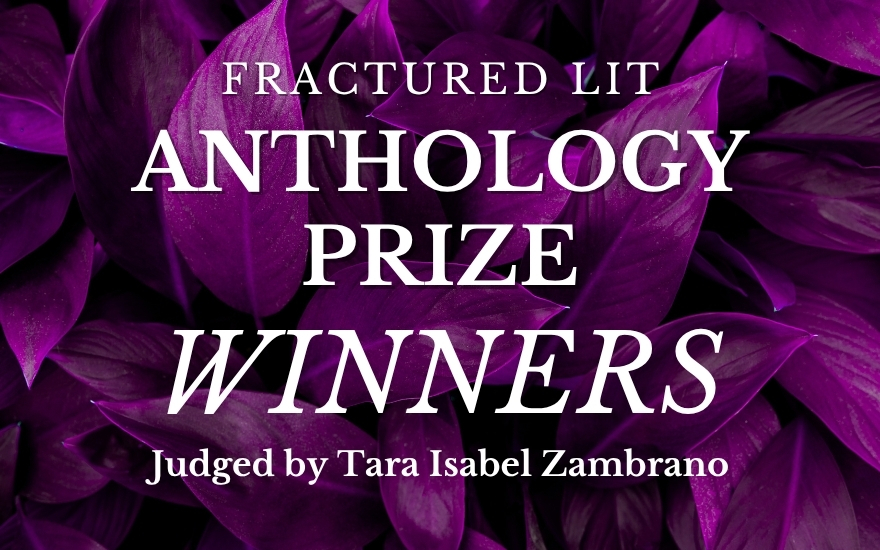
by Fractured Lit | Jun 27, 2025 | news
Judge Tara Isabel Zambrano has done the difficult task of choosing the twenty winners for this year’s anthology! We’re so excited to publish these twenty stories on our website and then in print! We also want to congratulate the shortlisted writers who trusted us with their writing for this contest! We wish you the best of luck in finding a perfect home for your stories!
The winners are:
- Wife 2.0 by Nancy Alvarado
- Jigsaw by Anna Cabreros
- Christina by Madison Cyr
- One Day in December by Jomil Ebro
- Nest by Genevieve Eichammer
- Blossoming by Claire Gallagher
- Dong Years by Deborah J. Hunter
- Scintilla River by Ariana-Sophia Kartsonis
- Good Dog by Karin Kohlmeier
- Another Friday by Buddfred Levi
- Weed by Beth Cho Little
- Blackberry Pie by Kay Nguyen
- Sick Day by Kalpita Pathak
- Kintsugi by Sascha Sizemore
- The Bride Is Eating Cake and the DJ Is Playing Werewolves of London by Andrew Stancek
- Birds by Laura Theis
- Richter Scale for Heartbreak by Lynn Thorsen Jensen
- Empty Bottle by Joseph V. Velaidum
- Didn’t We Realize We Were Drowning? by Linda Wastila
- Hands by Deb Waters
Congrats to everyone who was shortlisted for this contest! It’s a feat in itself!
- Wife 2.0 Wife 2.0 by Nancy Alvarado
- Veterans by Joshua Ambre
- No Soap by Shauna Andrews
- After the Rocket by Matt Binder
- Abraham Ritter: March 7, 1949— by Lauren Bo
- Isopentyl acetate by Jonathan Buckmaster
- Jigsaw by Anna Cabreros
- Christina by Madison Cyr
- Lightyears Away by Scott Dorsch
- One Day in December, My Trapezius Decided to Write a Short Epic Poem by Jomil Ebro
- Nest by Genevieve Eichammer
- Feeling Cakes by Susan Fuchtman
- Blossoming by Claire Gallagher
- Before The Everything After by Charlie Rogers & Jaime Gill
- Dog Years by Deborah J. Hunter
- Sister Sister by Robin Kalota
- Scintilla River by Ariana-Sophia Kartsonis
- Ripe by Gretta Trafficante
- Good Dog by Karin Kohlmeier
- Another Friday by Buddfred Levi
- Weed by Beth Cho Little
- Rock Dove by Megan Lui
- Burn by Alison Luk
- New You Wig Emporium by Andrea Marcusa
- Last Things by Mark Morton
- Close and Far Away by Michele Moseley
- Blackberry Pie by Kay Nguyen
- Sick Day by Kalpita Pathak
- Some of Us Notice the Berries by Hannah Retallick
- Miss Tafia, Her Snakes and Her People by Mary Ann Rojas
- The Verizon Guy by Jen Shepherd
- Kintsugi by Sascha Sizemore
- Big Top by Rachael Smart
- The Bride Is Eating Cake and the DJ Is Playing Werewolves of London by Andrew Stancek
- Birds by Laura Theis
- Richter Scale for Heartbreak by Lynn Thorsen Jensen
- Empty Bottle by Joseph V. Velaidum
- Percussion of Empty Rooms by Dana Wall
- Didn’t We Realize We Were Drowning? by Linda Wastila
- Hands by Deb Waters
- By the Sea, By the Sea, By the Beautiful Sea by Sandra Yannone

by Kim Magowan | Jun 26, 2025 | flash fiction
Perhaps you will find yourself in this situation, returning late at night to a university campus, deserted for the summer. This is where all of you visiting chemists are bunking during your one-week Biomolecular conference. You left both your wallet and cell phone in your assigned dorm room because you were rushing out the door to get a ride to the dinner in town for all the chemists. That dinner was a clever concept, but off-putting to eat (like the fizzing cake—who would want to eat a fizzing cake?).
So you’re already stressed about getting past the security gate because it’s late at night and you have no ID, and therefore startled when the security guard looks you in the eye, as if he’s been waiting for you, and says “Are you Mrs. Gallatin?” [insert your own husband’s last name here]. You pause because that isn’t your name, it’s your husband’s name, which you never adopted, so you think the security guard might have you mistaken for someone else. But then he says, “Are you Christine Gallatin?” [insert your own first name], dispelling all confusion. So you nod, even though that isn’t technically you. And he takes your elbow, gently, not in an alarming, arresting-you sort of way, though you are nonetheless alarmed. He says, “Come over here, please, Mrs. Gallatin,” leading you to the left of the security gate to stand by a peeling eucalyptus tree.
A young woman walks swiftly towards you. She’s wearing a dark suit and has a low ponytail, and her face is a perfect oval, egg-shaped. But the thing you notice most is the concerned expression in her large eyes, which makes your heart, already beating quickly, race. She says, in a gentle voice. “Christine, I’m afraid I have bad news.”
Instead of saying “What?” you say, “Really bad news?” which you understand, even while saying it, is not a question so much as a deflection, a bid for more time. She doesn’t respond to this verbally but tucks her chin in a quasi-nod. Now your brain mimics your heart, racing from your mother (awful but tolerable, she’s old) to your sister (two years younger than you, shocking) to your husband (not tolerable) to your—and here your brain shudders to a halt and you say, “Just tell me!”
So, here’s my advice.
Instead of saying “Just tell me,” swap out the first word and say, “Don’t tell me!” Then run. Run as fast as you can. You will be traveling light. You may be wearing a silly dress and a thin green cardigan, and you may have a small purse with nothing inside but lip gloss and a box of Tic Tacs, but whatever! You will just have to make do. And no phone, but that’s for the best, because the last thing you want right now is to be accessible. And espadrilles instead of sneakers, but tough shit. Run! Run for the woods outside this bucolic campus. Run before the social worker and the security guard pursue you. Disappear in the woods. Make a life there. Try to recall your forestry skills, which are negligible (you dropped out of Brownies and went camping twice when you were a kid). Eat nuts and berries and mushrooms. Hope they aren’t poisonous. (Though, do you really care if they are poisonous?).
As long as you hide in the woods, sleeping on the damp ground, you won’t have to hear whatever news that pony-tailed, sad-eyed woman intended to tell you. If you think about it, think about it cautiously. For instance, consider who could stand to have a job like that young woman has, telling people terrible news? Or realize how certain phrases like “Are you sitting down?” aren’t delivered because anyone actually needs to sit down, but to offer a built-in delay, an opportunity to prepare oneself (as if one could ever prepare oneself) to receive bad news. Or think about Shrödinger’s hypothetical cat in the box.
Do not, under any circumstances, think about your daughter. It may occur to you that the news could be bad, but in such a way that knowing it would be useful. For instance, your daughter might be in a coma, and you might have an opportunity to visit her and hold her warm, dead-weight hand. But in your heart, you know from the sad-eyed woman’s face that this is not the news, which is why it is best to simply make a new life, alone in the woods.
Of course, this advice is all contingent upon the supposition that you have only one child. If you (like me) have two children, then I am afraid that there is no holding your hands over your ears and running off to the woods for you. When the sad-eyed woman does her chin tuck, half-nod thing, your mind will go to the one daughter (the one you worry about). But of course, it’s possible that the bad news involves both children, which will then make you realize there are degrees of intolerability here, and one intolerable thing is preferable to the other.
At any rate, I am afraid, in the instance that you have more than one child, that you are stuck, and in that case, I can only say, like the pony-tailed woman said, I am so very sorry.
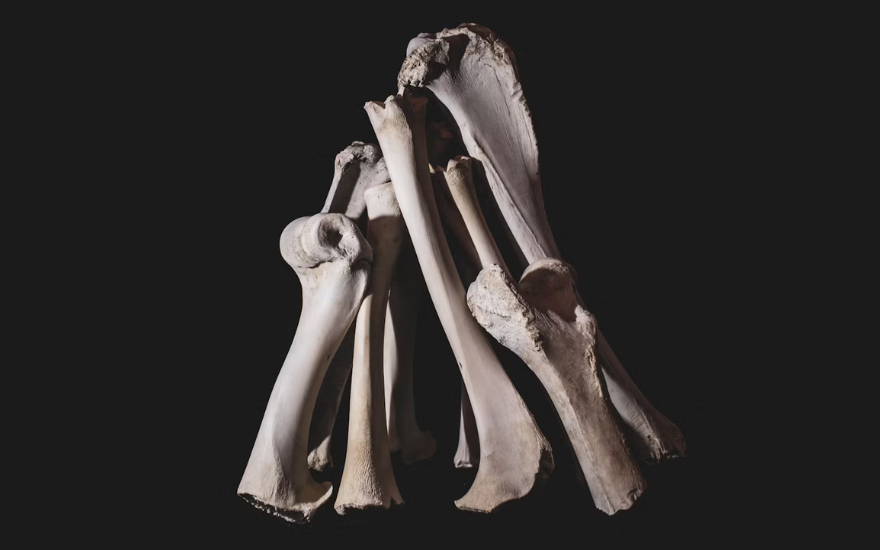
by Sabrina Hicks | Jun 23, 2025 | micro
Coyote
The house slept while I stayed up stretching, trying to fit my body into this world, knowing
something ancient lives inside me and needs to ease into sleep. It worms its way through my
bloodstream. A howl, released with a stretch to hide its strangeness. It is all I can do to stay sane. To hold together these bones that rattle inside me, seeking to form the perfect posture like the skeleton we had in anatomy class. We called him Hal. Upright and stoic, staying in the front
corner of the room to remind us we are not unlike our parents, that we will always run to and
away from death. Hal, pulled to the center on the room once a year for a lesson, covered in dust, dust being primarily the dead skin cells of everyone in the class, shedding our younger selves. I am stretching three times a day now and sometimes late into the night. My bones pop and click in and out of place. I howl along with them when I am supposed to breathe with intention; intention leads me back to the coyote. The one I am always combing the desert for. The one that stopped to stare at me the day I crossed the rocky wash along the foothills. It had borrowed the eyes of my father. The animal didn’t leave until I recognized him. Hiya dad, I said, and he trotted away. Satisfied. It was the only time I recognized someone who wasn’t fully in his form.
Bones
I told my teacher I would haunt the halls of high school. I would visit his classroom and toss over
the desks to scare the kids. Dance a waltz with Hal. He didn’t object. He taught long enough to
ignore the ramblings of teenagers unable to commit to time. That was long ago and I have not
forgotten. I store memories outside my brain. I shove them around my body so they are always
moving, so they do not land in corners. My mother leaves post-it’s around the house reminding
her to shut off the stove. Watch a boiling pot. Unplug an iron. She worries mostly about fire.
Maybe she recalls the one that streaked down the mountain, aiming for our house when I was a
child. I was outside doing cartwheels until I landed on my arm and broke a bone. She said it
wasn’t a good time to go to a doctor. There was a fire to worry about. It was heading for our
house. Neighbors stood on graveled yards filled with cacti and exchanged bad information that
they repeated until it rose into hysteria. But flames never reached our home. The winds turned
and burned down Mr. Bukowski’s house. Inside were priceless paintings. That’s what he told the
insurance lady months later. Mr. Bukowski, we knew, had a bad memory. By the time my
mother remembered me, my arm had set funny. Two bones no longer moving with fluidity. I do
not fault her. She was running away from Hal. I put a post-it note on my refrigerator to
remember to follow through on my hauntings. Where I need to be when my soul doesn’t have
this body to roam mountains or comb the halls of places I have been, where florescent lights
create dreamlike memories that no longer serve me, but somehow made me be the type of person who follows through on her threats.
Howl
There was a night when a pack of coyotes tore through our neighborhood yipping and crying. No one knew what got into them. (I know this because the next morning a text chain went out
remarking on their howls. It was the kind of text chain never meant to solve anything.) They ran
up and down our suburban streets. Through yards and driveways until I saw lights in the neighborhood slowly turn on. I pictured neighbors waking, pulling back their blankets and sheets
with high thread counts, setting their feet to the ground, their toes searching for something soft to slide into before investigating. They would rub their blurry eyes, thick with sleep, shuffle to their front doors. Maybe they just looked out the window—safer that way. Maybe they even caught site of their fur in the dark. Or saw the distant view of city lights turned on at odd hours as the coyotes altered the way we would view the blackened shape of mountains. How the moon rolled between them like a polished stone. One neighbor bravely said they had their .45 ready. Another neighbor said the animals were looking for pets to eat. Make sure to never let them out alone in the dark. Make sure you don’t leave food out. Make sure you remember to close your garage. To lock your doors. To install motion sensor lights to flood the dark areas around your homes. Flood them with light. Shoot them with rock salt. I wake every morning with my tongue slick with the taste, my fur matted with thorns and moonlight, a howl escaping from somewhere deep inside me.











Recent Comments